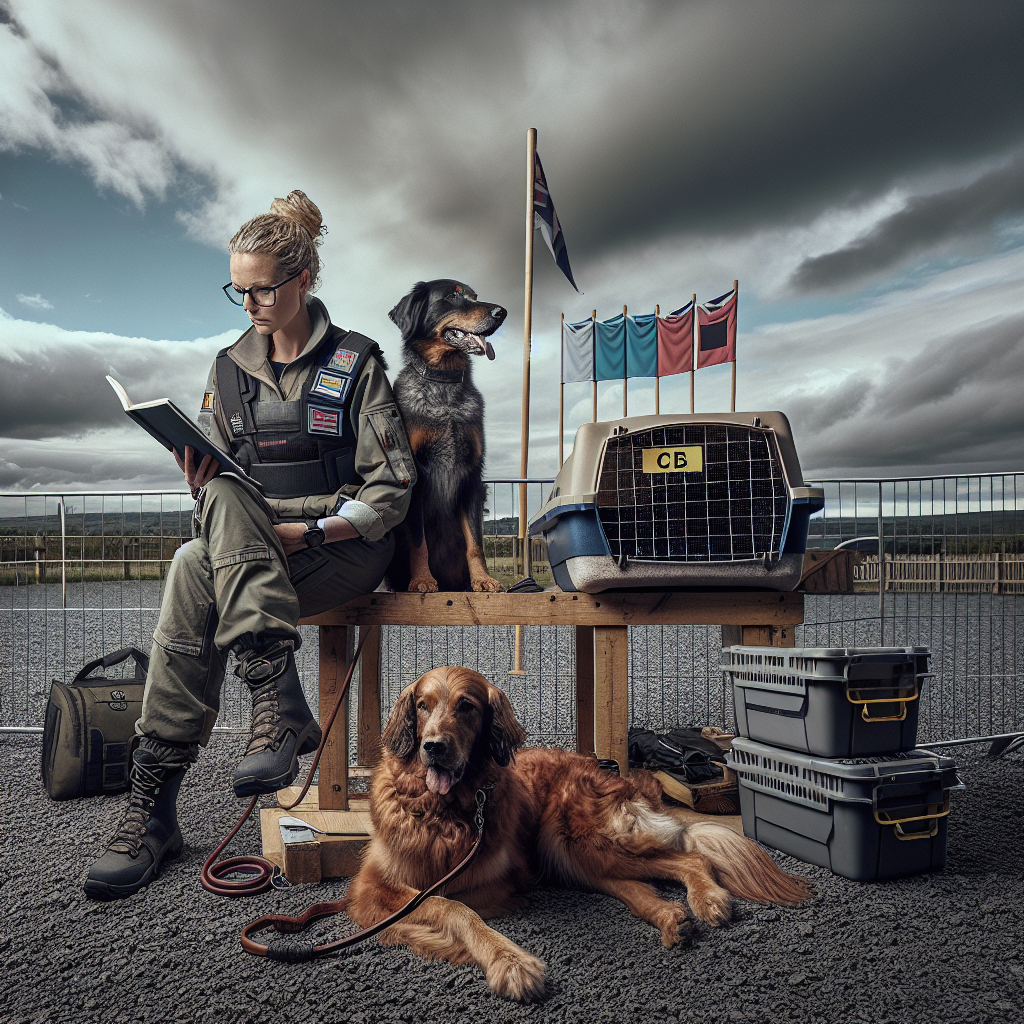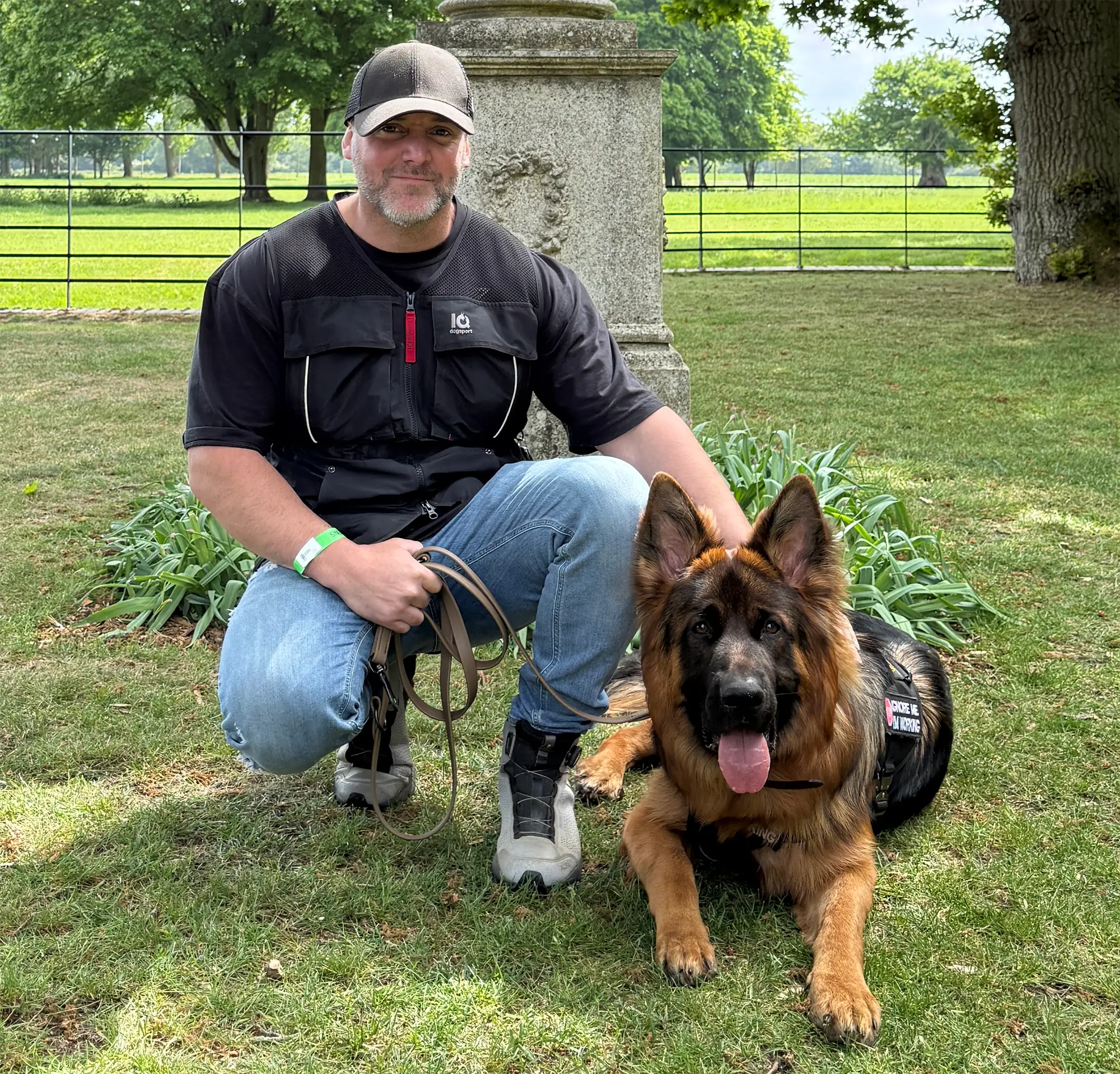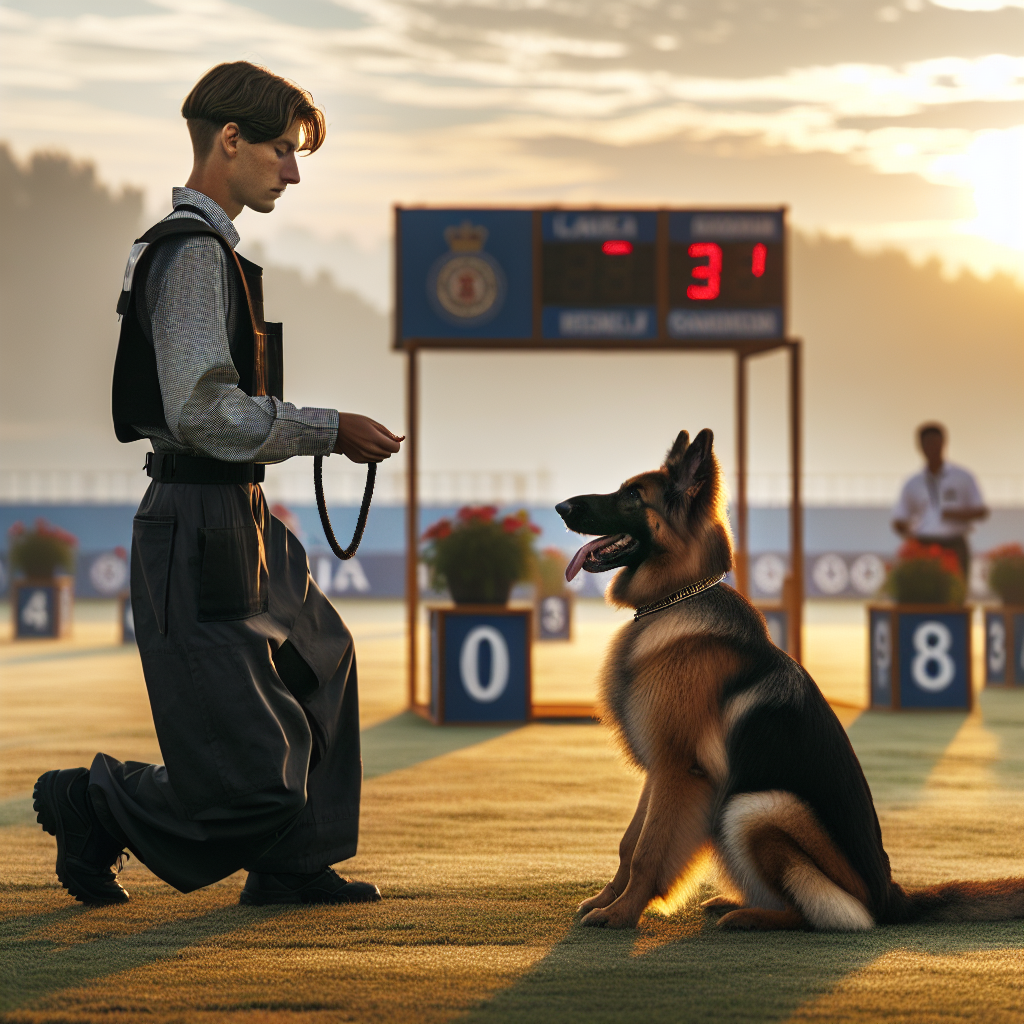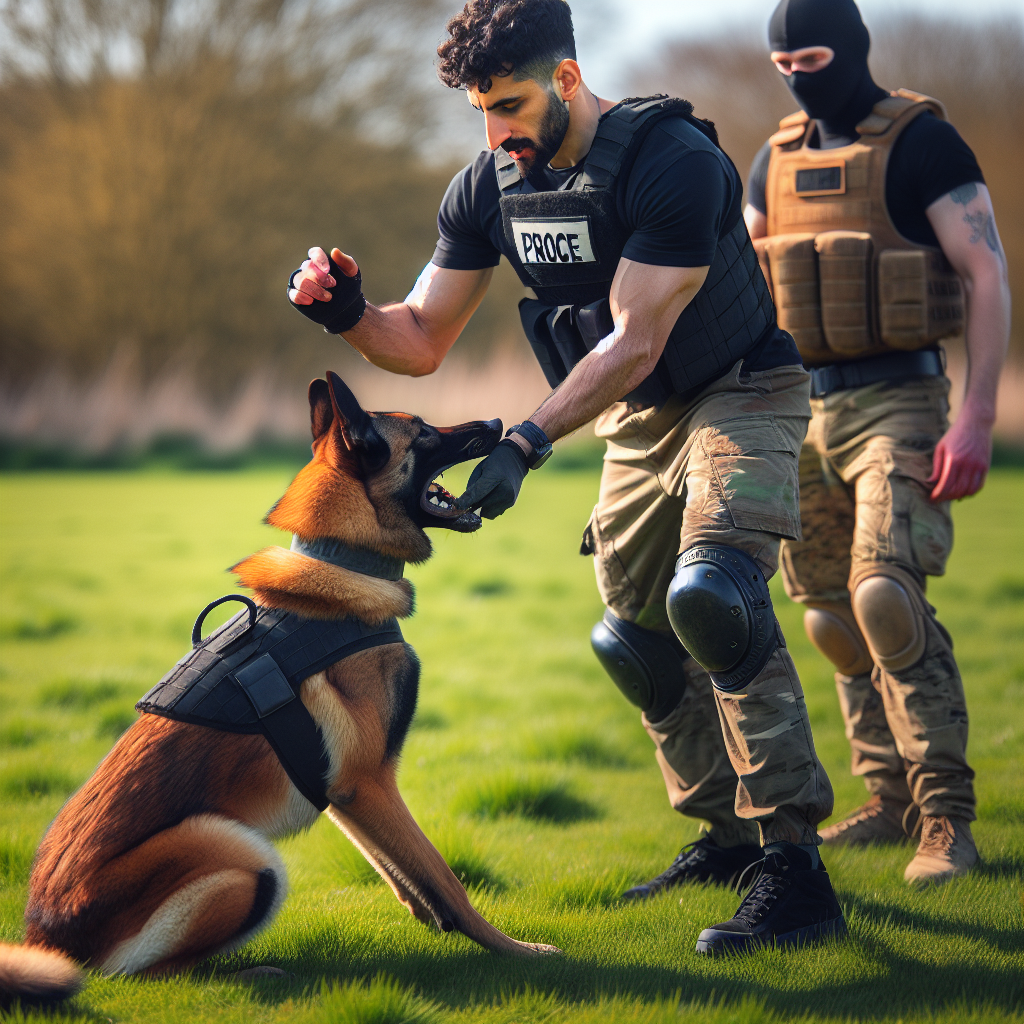Working Through Long Trial Days

Why Working Through Long Trial Days Matters
Working through long trial days is a skill in its own right. The day is long, the waits are unpredictable, and the pressure is real. Many good training plans fail not because the dog lacks skill, but because the team cannot keep clarity, energy, and focus from first check in to the final routine. At Smart Dog Training, we prepare dogs and handlers to thrive on these days, not just survive. With a certified Smart Master Dog Trainer guiding you, we build the structure and stamina that carry you from the car park to the podium.
In this guide, I will show you how Smart turns training hours into trial day results. You will learn how to plan your routine, manage arousal, protect your dog’s energy, and make great choices in the ring and outside it. Most of all, you will see how the Smart Method turns pressure into performance.
What Long Trial Days Demand
Trials challenge more than your heelwork or retrieve. They ask for physical endurance, mental stamina, flexible routines, and tight teamwork. Your dog must shift from resting to ready, perform on cue, then settle again without losing the desire to work. You must read the day, time your warm ups, and make calm choices.
Here is what the day commonly demands:
- Early starts and long waits
- Changing weather and surfaces
- Noisy parking areas and busy walkways
- Multiple phases in different locations
- Short notice call ups
- Limited space to warm up
- Rules and etiquette that add pressure
Working through long trial days begins by accepting these demands and training for them with intent.
The Smart Method For Trial Endurance
Every Smart programme is built on our five pillars. They turn your skills into reliable behaviour when it matters.
Clarity
We keep commands, markers, and routine cues crystal clear. Your dog learns exactly what starts work, what ends work, and what earns reward. Clarity cuts confusion when noise and pressure rise.
Pressure and Release
Fair guidance and timely release build accountability without conflict. Your dog understands that good choices end pressure and bring reward. This balance keeps behaviour steady across a long day.
Motivation
We develop a reward system that stays valuable from morning to evening. Food, toys, praise, and social play are layered so your dog stays keen to work even after long crate rests.
Progression
We increase distraction, duration, and difficulty step by step. Your dog learns to perform in car parks, by rings, and in new venues. Progression is how we make training stick.
Trust
We nurture a calm bond that carries you both. Trust helps your dog settle in a crate, rise on cue, and recover after each phase. It also keeps your mind clear when the schedule shifts.
Building Physical Endurance
Working through long trial days requires a strong body that can work, rest, and work again. We plan conditioning just as we plan obedience.
- Strength and stability: Add controlled hill walks, cavaletti, and balanced core work two to three times a week. Keep reps low and form perfect.
- Cardio base: Use steady trotting, light canicross, or swimming to build aerobic capacity. Short sessions, consistent pacing, and cool downs protect joints.
- Sport specific sprints: Closer to trial day, add brief high output work that mirrors your sport. Keep volume low and recovery long.
- Warm up and cool down: Five to ten minutes of movement, joint circles, and light engagement before work. Then controlled walking and gentle stretching after.
- Vet checks: Regular checks keep your plan safe and tailored.
Endurance is not about grinding the dog down. It is about making each effort efficient and recovery quick.
Mental Stamina And Arousal Control
The best dogs do not live at a constant high. They shift gears on cue. That is how working through long trial days becomes smooth.
- On off switch games: Teach a clear start cue and an end cue. Start means we work. End means we rest. Reward both states.
- Crate conditioning: Build a calm crate habit at home, then in busier places. The crate becomes the dog’s safe place for full recovery.
- Patterned recovery: After a short warm up, do a simple behaviour chain, then back to the crate with a chew. Repeat. The pattern teaches rhythm.
- Neutral dog skills: Teach your dog to ignore other dogs, food on the floor, and crowd movement with clear markers and rewards.
- Breathing resets: Pair quiet handling with slow breathing while your dog settles. You regulate them and yourself at the same time.
Pre Trial Routine And Packing List
Your routine is your anchor when working through long trial days. Plan it and practice it before the big day.
The night before:
- Confirm running order, travel time, and parking
- Pack the car so arrival is simple and calm
- Pre portion food and rewards
- Charge devices and set alarms
Smart packing list:
- Crate, shade cover, and a non slip mat
- Two leads and two collars or harness options
- Primary and secondary reward items
- Water, light food, and electrolytes if advised by your vet
- Cooling coat or warm layer based on weather
- Hand towels, wipes, bin bags, and a small first aid kit
- Spare marker cards or cue cards for your routine
- Notepad to log times, warm ups, and results
Morning of the trial:
- Light walk, toilet, and a short engagement game
- Simple breakfast or none based on your plan
- Arrive early to choose a quiet set up spot
Travel, Crating, And Field Etiquette
Working through long trial days starts the moment you leave home. Your dog should travel safely and arrive settled.
- Travel calm: Short pre travel walk, then into a secure crate. Use a cover if your dog settles better with low visual input.
- Set up smart: Park away from heavy foot traffic. Face the crate door to a calm view. Place water, shade, and airflow first.
- Footprint rules: Keep your space tidy. No wandering on leads. Dogs remain under control at all times.
- Ring respect: Give teams space near the ring. Do not allow greetings. Keep your dog neutral and quiet.
Good etiquette protects your dog’s focus and earns respect for the Smart community.
Warm Up Protocol For Each Phase
A good warm up lights the mind, wakes the body, and preserves energy. Keep it short and specific.
- Phase brief: Review cues and order while your dog rests. You carry the plan so your dog can relax.
- Activation: Two to three minutes of movement. Walk, trot, and joint circles.
- Engagement: Short focus games, position changes, and one or two precision reps.
- Proof touch: One behaviour that confirms readiness. If it is crisp, you are ready. If not, reset or shorten the plan.
- Stop early: End with success and return to the crate. Do not chase perfect in the warm up.
Adjust the warm up to weather and surface. In cold or wet, add more movement. In heat, keep it brief and cool. Working through long trial days means you adapt the plan while keeping the pattern intact.
Managing Energy Between Heats And Long Gaps
The gaps are where trials are won or lost. Smart handlers manage the minutes well.
- Time blocks: Note the call times and build backward. Plan a toilet break, a short leg stretch, a micro warm up, and a rest window.
- Food timing: Small and light if needed. Priority is water and salts based on your vet’s advice. Avoid heavy meals.
- Quiet handling: Low voice, slow hands, and no extra chatter. Calm bleeds into your dog.
- Shade and airflow: Heat drains focus fast. Use covers, fans, and cool water on paws and belly if safe.
- Recovery chews: A safe chew can help lower arousal and fill long waits.
Working through long trial days is about rhythm. Each block has a rest, a tiny activation, and a clear end cue.
Nutrition, Hydration, And Recovery
Fuel and fluids keep the engine smooth. Plan them before the day.
- Hydration: Offer small amounts often. Clear pee and steady energy are your guides.
- Electrolytes: Only if advised by your vet. Use brands and doses you have tested in training.
- Food: Many dogs work best with a light meal early and small top ups after phases. Others do best fasted until the final phase. Test this in advance.
- Post phase recovery: Five minutes of walking, then water, then a short rest in the crate. Only feed once breathing has settled.
- Heat and cold: Adjust intake to weather. Protect paws and core temp at all times.
Handler Mindset And Ring Craft
Your dog reads you. Calm, clear, and consistent is your edge when working through long trial days.
- Simple self talk: One cue per step. I lead, my dog follows, the plan works.
- Visualise: Walk the routine in your head with real timing. See your start cue, your markers, and your finish.
- Ring entry: Walk with purpose, set your start point, breathe out, cue engagement, begin.
- Marker timing: Reward positions and transitions in training so trial timing feels natural.
- Let go of errors: If something slips, reset your focus at once. The next cue is a new start.
At Smart Dog Training we teach ring craft with the same structure we teach obedience. That is how confidence holds across a full day.
Troubleshooting Common Trial Day Problems
Even well trained teams hit bumps. Here is how Smart addresses them without drama.
- Dog is flat: Increase movement in warm up, shorten reps, and use a higher value reward. Praise more, pressure less.
- Dog is over aroused: Extend crate rest, add a longer walk in a quiet area, and lower your voice. Use your end marker with confidence.
- Late call ups: Keep a micro routine ready. Two minutes of walk, one minute of engagement, one proof touch, go.
- Weather shock: For heat, move to shade, cool with water, and cut warm up length. For cold, add movement and protect the core.
- Ring nerves for the handler: Focus on your dog’s eyes, breathe out slowly, and say your first cue with commitment.
Six Week Conditioning And Proofing Plan
Working through long trial days is built in layers. Use this Smart plan as your template and tailor it with your trainer.
Weeks 1 to 2
- Conditioning base: Two short cardio sessions and two strength sessions each week
- Crate conditioning in new places three times a week
- On off switch games daily with clear start and end cues
- Short field trips to proof neutrality around dogs and people
Weeks 3 to 4
- Add one sport specific sprint session per week
- Begin ring side rehearsals in noisy places
- Run two mini trial days with planned warm ups and long waits
- Test food and water timings
Weeks 5 to 6
- Reduce total volume and maintain intensity in short bursts
- Rehearse your exact warm up, then shorten it by 20 percent
- Run one full dress rehearsal in a new venue
- Refine recovery routines and crate naps
Throughout all six weeks, log reps, energy levels, and recovery. Share the log with your Smart trainer to adjust details.
Aftercare And Performance Review
How you finish the day sets you up for the next one. After your final phase, give your dog a calm cool down, water, and a light meal if needed. Check paws, muscles, and joints with gentle handling. Keep praise high and pressure low.
Within 48 hours, review video and notes. At Smart Dog Training we score three areas after every event:
- Structure: Did the routine and timing hold from start to finish
- State: Did arousal, focus, and recovery match the plan
- Skill: Did obedience or sport skills perform as trained
Choose one win and one focus for the next block. That is how growth stays steady even when working through long trial days becomes normal for your team.
When To Work With A Smart Master Dog Trainer
If your dog struggles to settle in a crate, if your warm ups feel random, or if trial day results do not match training, it is time to bring in expert help. A Smart Master Dog Trainer will assess your routine, your dog’s state, and your environment. Then we build a precise plan that fits your sport and your schedule.
Ready to turn your dog’s behaviour around? Book a Free Assessment and connect with a certified Smart Master Dog Trainer - available across the UK.
FAQs
How early should I arrive for a trial
Plan to arrive 60 to 90 minutes before your first phase. That gives time to set up, walk, and run a short warm up without rushing. Working through long trial days begins with a calm start.
How long should my warm up be
Most dogs need five to eight minutes total. That includes movement, engagement, and one proof touch. In heat, cut it shorter. In cold, add more movement.
What should my dog eat on trial day
Test this in training. Many dogs work best on a light early meal with small top ups. Others work best fasted until the final phase. Keep water frequent and small.
How do I keep my dog calm between phases
Use a trained end cue and crate rest in a quiet area. Add a short walk, then a tiny activation before the next call. Reward calm like you reward work.
What if the schedule changes at the last minute
Use your micro routine. Two minutes of walking, one minute of engagement, one proof touch. Working through long trial days means your plan flexes while your pattern stays the same.
How do I practice for busy venues
At Smart Dog Training we proof in car parks, near fields, and in new venues. We build from quiet to busy with our progression pillar so performance holds anywhere.
Conclusion And Next Steps
Working through long trial days is about rhythm, structure, and trust. Build a dog that can rest deeply and rise on cue. Build a routine that protects energy and sharpens focus. Then manage the day with calm choices and clear timing.
Smart Dog Training delivers this with the Smart Method. We shape clarity, pressure and release, motivation, progression, and trust into a plan that carries you from first check in to your final cue. With certified Smart Master Dog Trainers across the UK, you can turn training hours into trial day results.
Your dog deserves training that truly works. With certified Smart Master Dog Trainers (SMDTs) nationwide, you'll get proven results backed by the UK's most trusted dog training network. Find a Trainer Near You



